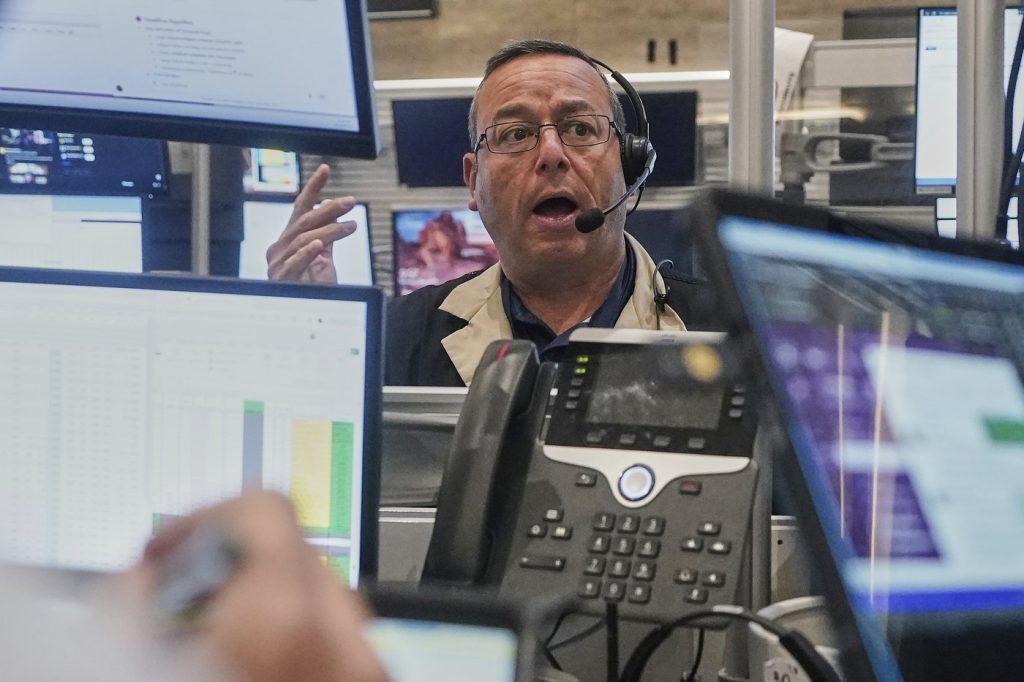BANGKOK (AP) - On Monday, Asian stock markets presented a mixed response, with significant gains noted in China. The fluctuations followed surveys indicating slight improvements in Chinese factory activity, suggesting some resilience in manufacturing despite the impact of increased U.S. tariffs.
Investors are closely monitoring the ongoing trade negotiations between the U.S. and China, particularly in light of a ruling by the U.S. Court of Appeals for the Federal Circuit on Friday. The court determined that former President Donald Trump exceeded his authority when he declared national emergencies to impose extensive import taxes affecting numerous countries globally.
In the Asian markets, Hong Kong's Hang Seng Index surged by 2% to reach 25,573.58, while the Shanghai Composite Index saw an increase of 0.3%, closing at 3,869.96. A government survey revealed that China's factory activity improved marginally in August, with the purchasing managers index (PMI) moving up to 49.4 from 49.3 in July. Notably, a score below 50 indicates contraction, and while these figures suggest ongoing challenges, they reflect a degree of resilience in the Chinese economy against the backdrop of increased tariffs.
Another private sector survey recorded a general PMI of 49.9 for the same month, up from 49.4 in July, reinforcing the notion that, while manufacturing is contracting, there are signs of stabilizing activity. Zichun Huang, an economist at Capital Economics, commented that despite the modest uptick in PMIs, there is limited room for optimism for the remainder of the year.
In contrast, Japan's Nikkei 225 index fell by 2%, settling at 41,849.82. South Korea's Kospi index also declined, dropping 0.8% to 3,161.31. Australian shares recorded losses, with the S&P/ASX 200 decreasing by 0.7% to close at 8,913.10. Taiwan's benchmark index fell by 1.1%, while New Zealand's market saw a slight gain of 0.5%.
In the U.S., markets remain closed on Monday in observance of Labor Day. However, the previous Friday marked the close of a prosperous month, although market benchmarks ended slightly below their recent all-time highs. The S&P 500 index retraced by 0.6% a day after achieving a record high, concluding the week at 6,460.26. The index experienced a monthly gain of 1.9%, marking four consecutive months of increases and a year-to-date rise of 9.8%.
Conversely, the Dow Jones Industrial Average slipped 0.2% to 45,544.88, while the Nasdaq composite faced a decline of 1.2%, closing at 21,455.55. The downturn in technological stocks offset gains in the healthcare sector, with Dell Technologies experiencing the most significant drop among the S&P 500 stocks, falling by 8.9% following its quarterly report that, despite outperforming expectations, highlighted persisting margin pressures and soft demand in PC sales. Other major tech firms also saw declines, including Nvidia (-3.3%), Broadcom (-3.6%), and Oracle (-5.9%).
Amid mixed economic indicators, traders seized the opportunity to realize profits from the previous week’s strong performance. The U.S. Commerce Department reported a 2.6% rise in prices for July compared to the same period last year, consistent with June’s figures and aligning with economist predictions. Notably, the core inflation measurement - which excludes food and energy - rose by 2.9%, marking the highest increase since February.
Recent data has suggested a significant slowdown in hiring since spring, raising concerns about the overall economic trajectory. Consumer sentiment has also taken a hit, with a University of Michigan survey indicating that feelings among U.S. consumers worsened in August, hitting the lowest point since May, primarily due to apprehensions regarding prices and the broader economy.
There were, however, notable exceptions in stock performance; Petco Health & Wellness and Autodesk defied the market's downward trend after releasing better-than-expected quarterly earnings. Petco saw a remarkable 23.5% increase, while Autodesk climbed by 9.1%.
As trading commenced this Monday, U.S. benchmark crude oil prices fell by 23 cents to $63.78 per barrel, while Brent crude, the international standard, decreased by 28 cents, settling at $67.20 per barrel. The U.S. dollar slightly decreased against the Japanese yen, trading at 146.93, down from 147.00 yen, while the euro appreciated to $1.1770 from $1.1682.











